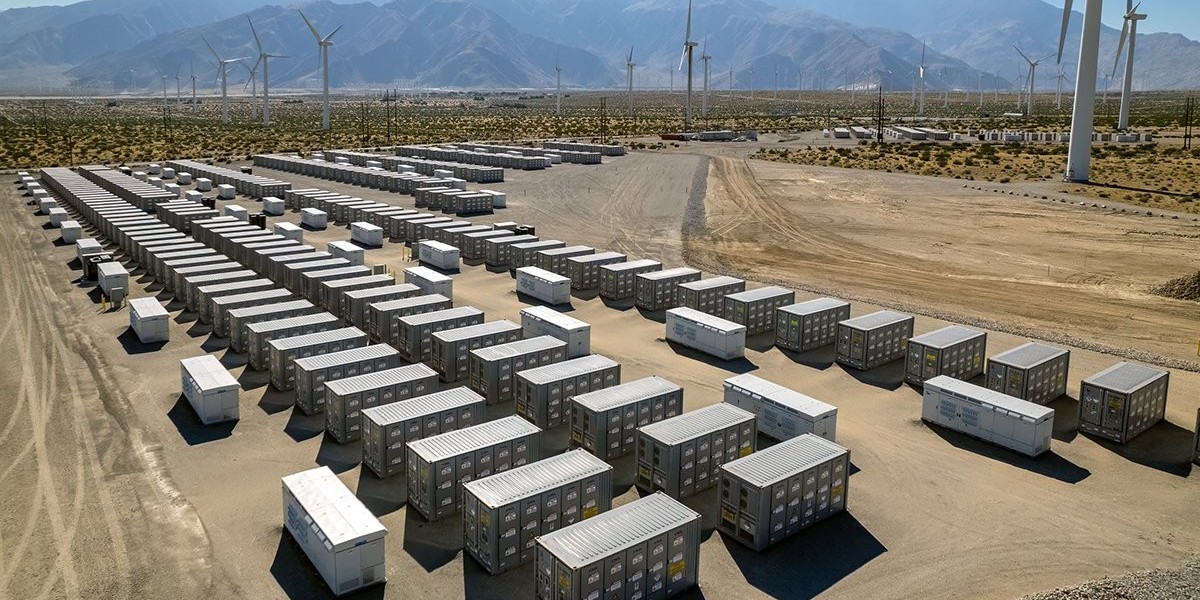Battery Energy Storage System (BESS) market is integral to the evolving energy landscape, particularly as the world accelerates the integration of renewable energy sources like solar and wind. These energy sources are key to reducing carbon emissions and achieving sustainability goals. However, their intermittent nature—solar energy is only available during the day and wind energy is subject to fluctuations—presents challenges for grid stability and reliability. As a result, BESS technologies have become essential in overcoming these challenges, making them a critical component of grid modernization and the transition to renewable energy.
The Role of BESS in Renewable Energy Integration
One of the most significant advantages of Battery Energy Storage Systems is their ability to store excess energy generated by renewable sources during periods of high production and release it when demand exceeds supply or when renewable generation is low. This capability is essential in balancing the grid and ensuring a stable power supply, particularly in regions where renewable energy penetration is rapidly increasing.
As the share of renewable energy in global power generation rises, grids need to adapt to the fluctuations in power supply caused by the variability of wind and solar power. BESS provides a reliable solution by enabling load leveling, peak shaving, and frequency regulation, thereby stabilizing the grid. This has proven to be particularly beneficial for countries like Germany, California, and Australia, where renewable energy sources represent a significant portion of the overall energy mix.
BESS also supports demand-side management by allowing consumers, both residential and commercial, to store energy during off-peak hours when electricity prices are lower. This not only helps manage energy costs but also reduces the strain on the grid during peak demand periods, further enhancing grid reliability.
Grid Modernization: The Path Toward a Smarter, More Resilient Grid
As renewable energy integration increases, traditional grids require modernization to handle the complexities of distributed generation, renewable energy integration, and energy storage. The future of grid modernization is closely tied to the widespread deployment of BESS. Advanced smart grids, which rely on real-time data, automated systems, and two-way communication between energy producers and consumers, are essential for managing the diverse inputs from renewable sources and ensuring a responsive energy network.
BESS contributes to grid modernization by providing distributed energy storage, allowing for localized storage and reducing the need for extensive and costly grid infrastructure. This localized approach also improves grid resilience, ensuring that energy can be stored closer to demand centers, reducing transmission losses and enhancing energy security. Additionally, microgrids, which are small-scale grids that can operate independently, benefit greatly from BESS technology, as it allows them to function autonomously and provide reliable power even during outages.
The Future Outlook: A Synergistic Relationship Between BESS and Renewable Energy
The future of grid modernization will see an increasing reliance on BESS to enable large-scale renewable energy adoption. Governments and utilities worldwide are investing heavily in both BESS and smart grid technologies to enhance grid flexibility and resilience. As battery costs continue to fall and energy storage technologies evolve, the adoption of BESS will accelerate, enabling greater integration of renewable energy into the grid and further advancing global efforts to reduce carbon emissions.
The future of the BESS market is bright, with technological innovations, such as solid-state batteries and sodium-ion batteries, improving the efficiency, sustainability, and scalability of energy storage solutions. These advancements will make BESS more affordable and accessible, further promoting the widespread adoption of renewable energy and ensuring grid reliability.
Conclusion
The Battery Energy Storage System (BESS) market is central to the integration of renewable energy sources and the modernization of the global energy grid. By enabling efficient energy storage and supporting grid stability, BESS plays a crucial role in overcoming the challenges posed by renewable energy’s intermittency. As technology continues to advance and costs decline, the role of BESS in achieving a sustainable, resilient, and efficient energy future will only grow stronger.



